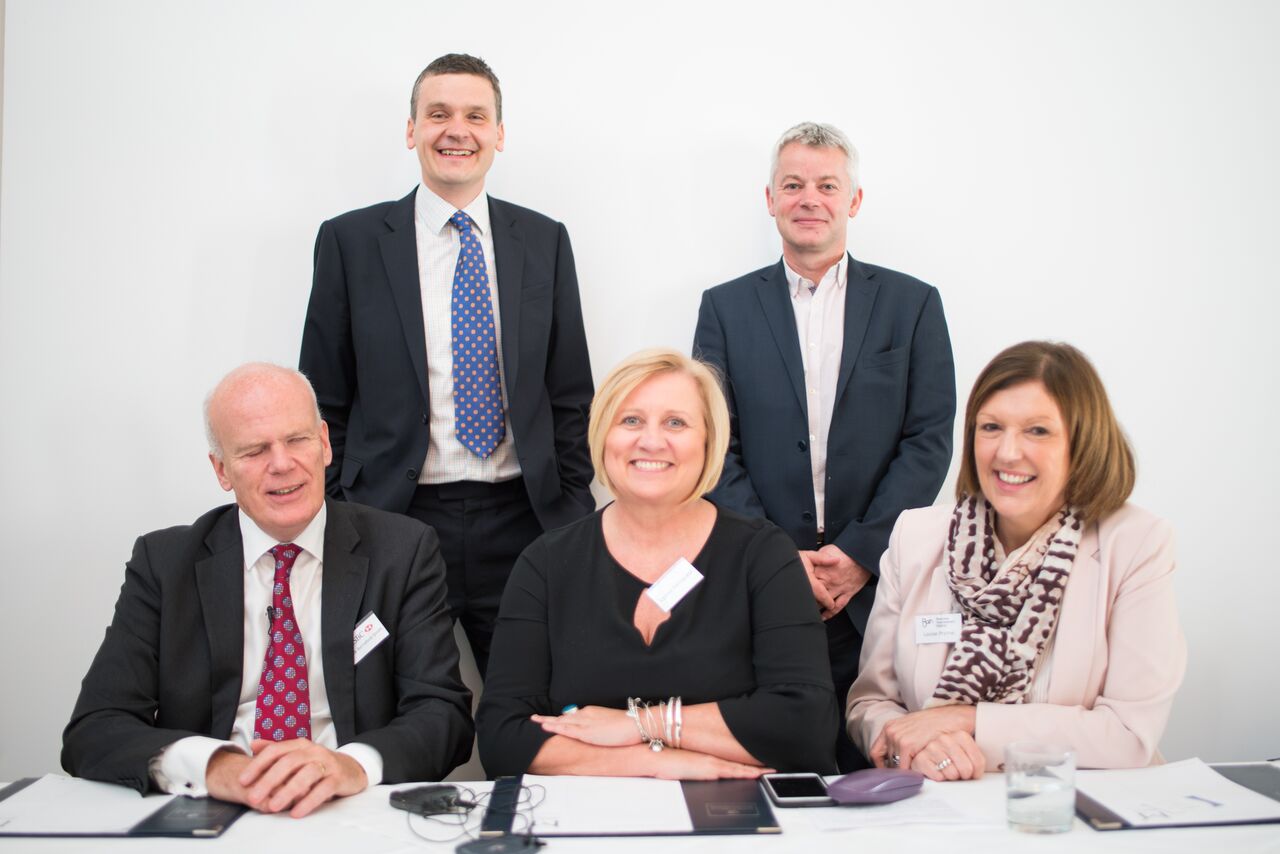Bath’s political leaders should be more courageous in their vision for the city or risk holding it back, according to senior business figures.
A dearth of grade A office space and a lack of support for independent retailers were among the factors preventing the city achieving its potential, guests at the recent Bath Economic Question Time debate heard.
Electrification of the railway line to London and the upcoming EU referendum were also on the agenda at the event staged by law firm Withy King in association with accountants Bishop Fleming.
The debate, at the Macdonald Bath Spa Hotel, heard from HSBC’s head of economics Mark Berrisford-Smith on the state of the UK economy and its prospects – both in and out of Europe following June 23’s vote.
He was joined for a question-and-answer session by a panel of Bath business figures made up of Withy King managing partner Graham Street, Bishop Fleming’s head of Bath office Andrew Sandiford, Bath BID (Business Improvement District) chief executive Louise Prynne, and former Bath Chronicle editor Lynne Fernquest.
The discussion was dominated by questions on what many perceived as a lack of vision from Bath’s political leaders at a time when the city faced challenges as well as opportunities.
Graham Street said the city’s leaders needed to look after existing businesses and attract new ones yet there was a severe lack of office space – not just grade A but grade B capable of accommodating growing firms. As a result these businesses could be attracted to Bristol or other locations.
He also said the city needed to work out what it wanted to be. “It’s got its own unique culture,” he said. “But it needs strong leadership. The leaders should have more courage and they should be prepared to take some calculated risks.
“Bath’s a great place to live and work and we need to celebrate that.”
Andrew Sandiford said the lack of office space was holding the city back – no new space had been built in two years – and while the new North and South Quays would create space for the type of innovative and creative businesses Bath needs, these were still several years away.
Louise Prynne said another challenge facing the city was to create the right jobs to retain talent in the city. She said if the city wanted to grow and prosper it needed people – particularly young people – with modern skills. Yet many students graduating from its universities could not afford to live in Bath.
Lynne Fernquest called for more collaboration. Bath had huge potential, she said, and conversations needed to take place at all levels to work out what it was good at. These unique facets could then be used to give the city real vision.
“We don’t need to try to take on other, bigger cities,” she said. “We just need to be the best Bath that we can be.”
Bath Business News is to feature a number of filmed interviews with Bath Economic Question Time panel and audience members discussing its key points.
Pictured: The Bath Economic Question Time panel, from left: Mark Berrisford-Smith, Andrew Sandiford, Lynne Fernquest, Graham Street and Louise Prynne




















